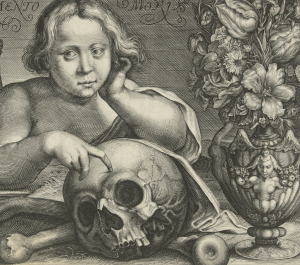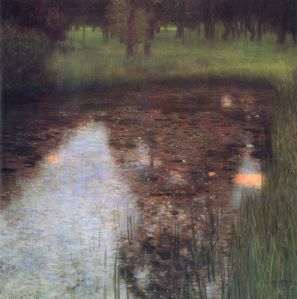To escape the neutral, I had long since forsaken the being for the persona, for the human mask. When I humanized myself, I’d freed myself from the desert.
I’d freed myself from the desert, yes, but had also lost it! and also lost the forests, and lost the air, and lost the embryo inside me.
The mask—humanisation—that we put on to help us elude the harshness of reality. A personal encounter with a cockroach inside the wardrobe of her former maid provokes a profund reflection on originary existence that exceeds humanity. The year opens thus: with The Passion According to G. H. by Clarice Lispector. This is no Metamorphosis. Lispector’s narrator is not transformed but ritually ingests a part of the cockroach’s body.
The demonic precedes the human. And the person who sees that presentness burns as if seeing the God. Prehuman divine life is of a presentness that burns.
This exploration of the prehuman and divine in Lispector’s narrative echoes themes in Spinoza’s Ethics, particularly as interpreted by Clare Carlisle. This is the conflation of God and Nature that Carlisle addresses in Spinoza’s Religion:
When Spinoza identifies Nature with God, however, this conception of Nature must be expanded, beyond consciousness and extension, to comprise the infinity of attributes which, he declares, belong to God. Spinoza offers Natura naturans as, so to speak, an alternative name of God. This divine name works to free the concept of God from the cultural baggage-particularly the anthropomorphic and moralising connotations-it had acquired over many centuries.
Lispector’s assessment of humanity through G. H. is not without hope, but as Spinoza writes in Ethics: “The emotions of hope and fear cannot in themselves be good.” We are steeped in anthropomorphism and fake morality, which inhibits the emergence of a clear understanding of what it is to be human.
Lispector’s The Passion According to G. H. is best ingested slowly. It is a fine start to this year’s reading, but I do not wish to end the consequent introspective mood that it provoked. I read Ronald W. Sousa’s translation and will remain with the book in Idra Novey’s translation.
Emily Dickinson shares Lispector’s fervent interest in the relationship between Nature and the God, conceptions aligned with my limited understanding of Baruch Spinoza. As I’ve only dipped into Ethics, and read Spinoza only through Clare Carlise, an amusing project might be to combine my rereading of Dickinson and continued reading of Passion with George Eliot’s translation of Ethics, which may lead into Daniel Deronda and Clare Carlisle’s The Marriage Question.




